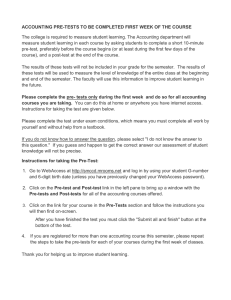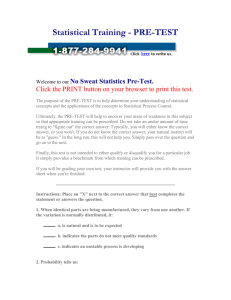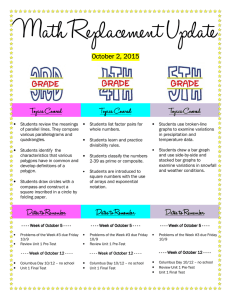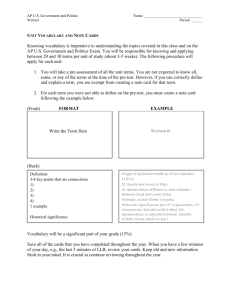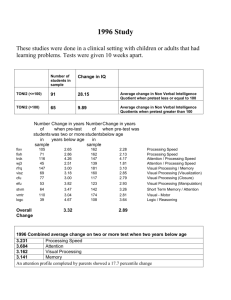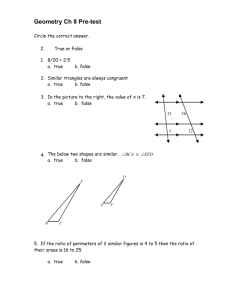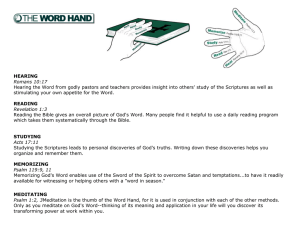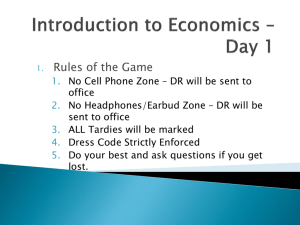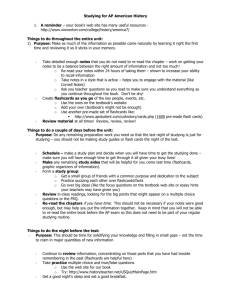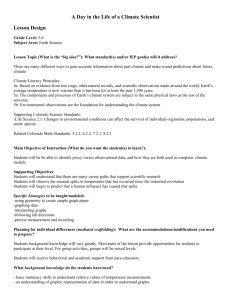Math tests are more like football games than spelling bees
advertisement
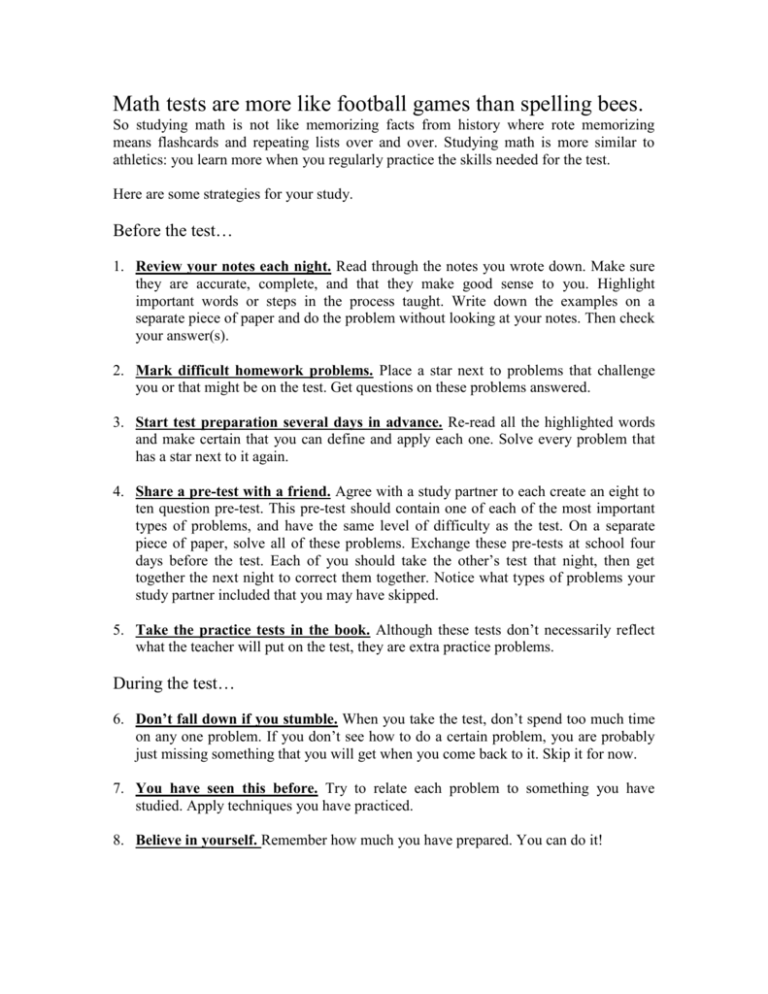
Math tests are more like football games than spelling bees. So studying math is not like memorizing facts from history where rote memorizing means flashcards and repeating lists over and over. Studying math is more similar to athletics: you learn more when you regularly practice the skills needed for the test. Here are some strategies for your study. Before the test… 1. Review your notes each night. Read through the notes you wrote down. Make sure they are accurate, complete, and that they make good sense to you. Highlight important words or steps in the process taught. Write down the examples on a separate piece of paper and do the problem without looking at your notes. Then check your answer(s). 2. Mark difficult homework problems. Place a star next to problems that challenge you or that might be on the test. Get questions on these problems answered. 3. Start test preparation several days in advance. Re-read all the highlighted words and make certain that you can define and apply each one. Solve every problem that has a star next to it again. 4. Share a pre-test with a friend. Agree with a study partner to each create an eight to ten question pre-test. This pre-test should contain one of each of the most important types of problems, and have the same level of difficulty as the test. On a separate piece of paper, solve all of these problems. Exchange these pre-tests at school four days before the test. Each of you should take the other’s test that night, then get together the next night to correct them together. Notice what types of problems your study partner included that you may have skipped. 5. Take the practice tests in the book. Although these tests don’t necessarily reflect what the teacher will put on the test, they are extra practice problems. During the test… 6. Don’t fall down if you stumble. When you take the test, don’t spend too much time on any one problem. If you don’t see how to do a certain problem, you are probably just missing something that you will get when you come back to it. Skip it for now. 7. You have seen this before. Try to relate each problem to something you have studied. Apply techniques you have practiced. 8. Believe in yourself. Remember how much you have prepared. You can do it!

